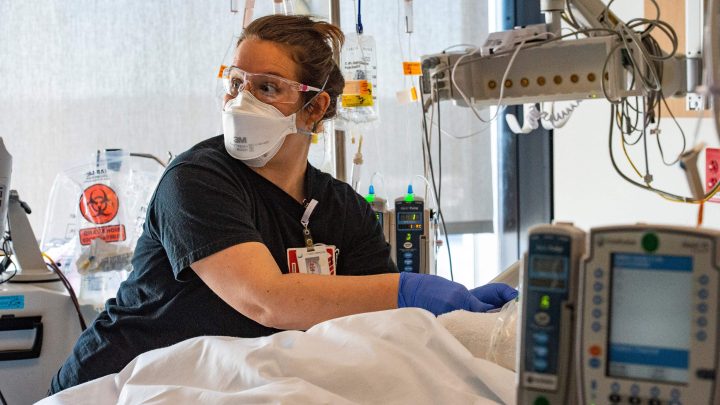
As Americans catch up on care they skipped during COVID, health insurance could get pricier
As Americans catch up on care they skipped during COVID, health insurance could get pricier

One of the more significant effects of the COVID-19 pandemic was people delaying all kinds of medical procedures, including an awful lot of surgeries. And now that, like so much about the pandemic, seems to be at an end.
United Healthcare warned Tuesday of higher medical costs stemming from Americans catching up on care that was delayed by the pandemic.
At the start of the pandemic, elective procedures at Holland Hospital in Western Michigan ground to a complete halt, according to chief financial officer Alex Roehling.
“There was a lot of uncertainty at that point in time as to how communicable things could be from a COVID perspective, and how easily that could transmit in the healthcare environment,” said Roehling.
But now, Roehling says everything from hip and knee surgeries to cardiac procedures have bounced back. “What we’re seeing is a demand for surgery, that is probably around equivalent to what we saw pre-pandemic,” he explained.
UnitedHealth said most of the surge is coming from Americans enrolled in Medicare.
Half of them get coverage through Medicare Advantage plans offered by private insurers that contract with the federal government, said Matthew Fiedler, senior fellow at USC-Brookings Schaeffer Initiative for Health Policy.
“The federal government finances about 75% of Medicare’s outpatient benefit for the typical beneficiary. And so, most of the additional cost here is ultimately going to be borne by the federal government,” he said.
But if this rush back to treatment includes younger Americans, “they’re either gonna bear that through the premiums they pay to the employer or in the long run, they’re probably going to bear it in the form of lower wages than they otherwise would have received,” Fiedler said.
Premiums might increase for another reason: inflation, said Sabrina Corlette, research professor at Georgetown University’s McCourt School of Public Policy. “Hospitals are having labor shortages and having to pay higher wages. Supplies might be more expensive,” she explained.
Plus, there’s the higher cost of treating conditions that may have only gotten worse over the past three years, Corlette said.
There’s a lot happening in the world. Through it all, Marketplace is here for you.
You rely on Marketplace to break down the world’s events and tell you how it affects you in a fact-based, approachable way. We rely on your financial support to keep making that possible.
Your donation today powers the independent journalism that you rely on. For just $5/month, you can help sustain Marketplace so we can keep reporting on the things that matter to you.


















